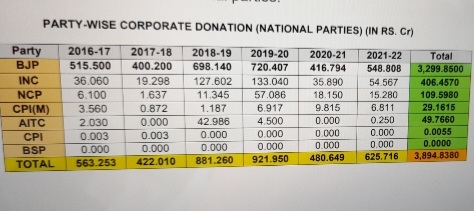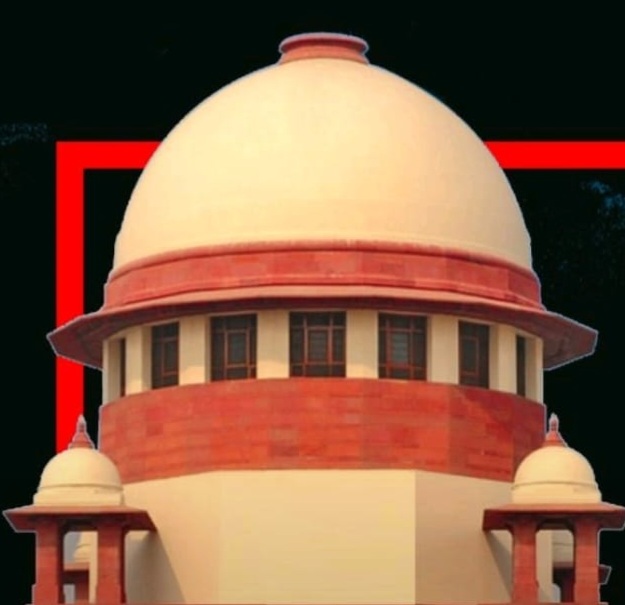New Delhi: In a landmark judgment, the Supreme Court of India has declared the Electoral Bond Scheme as well as certain provisions of the Representation of the People Act 1951 and the Companies Act as unconstitutional.
The scheme, which allowed for anonymous donations to political parties, was deemed violative of Article 19(1)(a) of the Constitution, which guarantees the right to freedom of speech and expression.
Supreme Court of India, headed by Chief Justice of India (CJI), Justice Dhananjaya Y Chandrachud, justices B R Gavai, J B Pardiwala, and Manoj Misra, delivered a historic judgment regarding electoral bonds.
Apex Court deemed the deletion of the proviso to Section 182(1) of the Companies Act, which permitted unlimited corporate contributions to political parties as arbitrary and violative of Article 14, which ensures equality before the law.
Political parties are required to submit detailed particulars of donors, the amount of each bond, and the particulars of the bank account to which the amount has been credited.
The Supreme Court highlighted that its interim order from April 12, 2019, required disclosure of all contributions made through Electoral Bonds, not just those in a specific year, as clarified by the Election Commission of India (ECI).
In light of the judgment, the Supreme Court issued several directives:
- The issuing bank must cease the issuance of Electoral Bonds.
- The State Bank of India (SBI), the designated issuing bank, must submit details of all Electoral Bonds purchased since the interim order of April 12, 2019, including the purchaser's name and the bond denomination.
- SBI must also disclose details of all political parties that have received contributions through Electoral Bonds since April 12, 2019, including the date of encashment of each bond.
- This information must be provided to the ECI within three weeks from the date of the judgment.
- The ECI is mandated to publish the information on its official website within one week of receipt.
- Electoral Bonds within the validity period but not yet encashed by political parties must be returned to the issuing bank for a refund to the purchaser's account.
The Supreme Court concluded by disposing of all writ petitions in line with the judgment and also cleared any pending applications related to the matter.
This decision marks a significant step towards enhancing transparency and accountability in political funding, ensuring that the democratic process is more equitable and accessible to all citizens.
The bench's judgment reflects a commitment to upholding democratic values and ensuring the integrity of the electoral system. It underscores the judiciary's role in safeguarding the principles of fairness and transparency in the democratic process.
This landmark ruling is likely to have a significant impact on future electoral reforms and the regulation of political funding in India. It marks a crucial step towards strengthening democratic institutions and promoting public trust in the electoral process.







